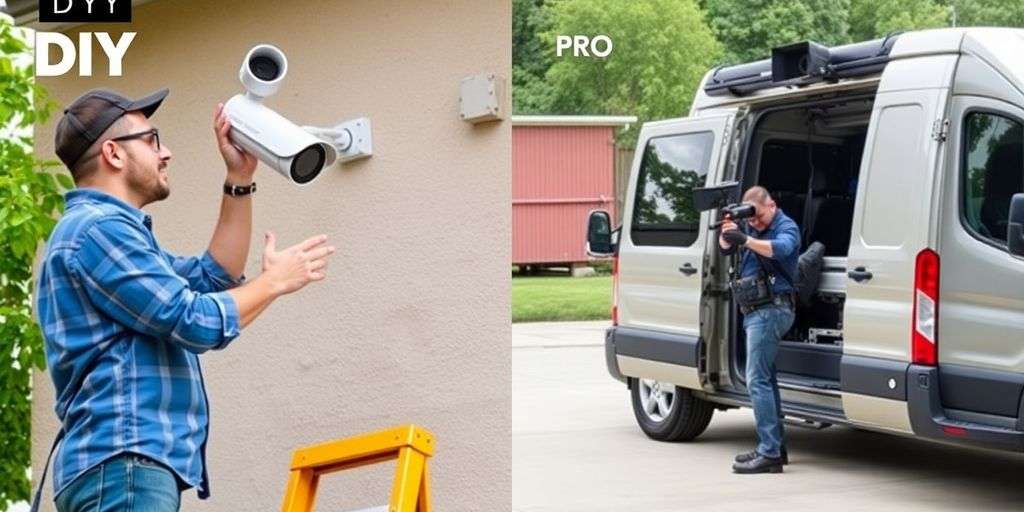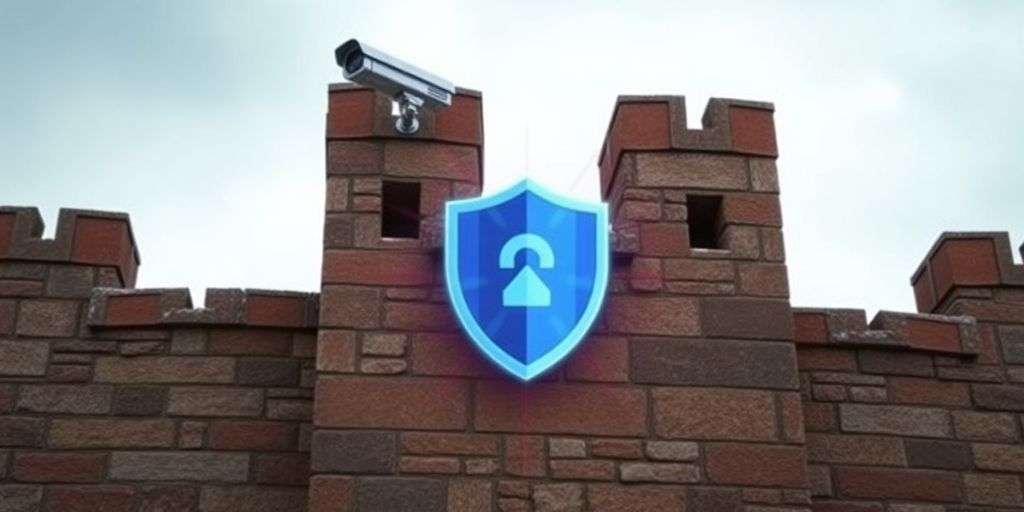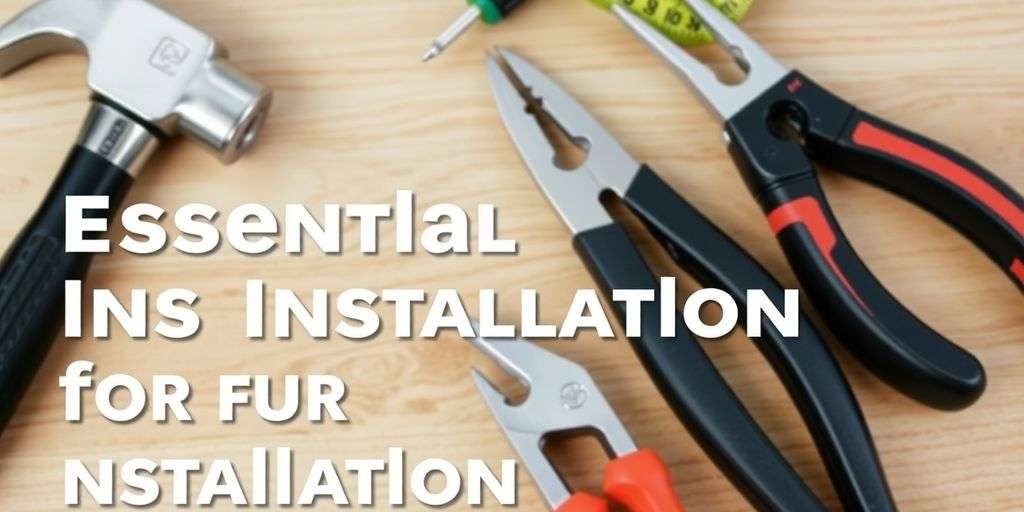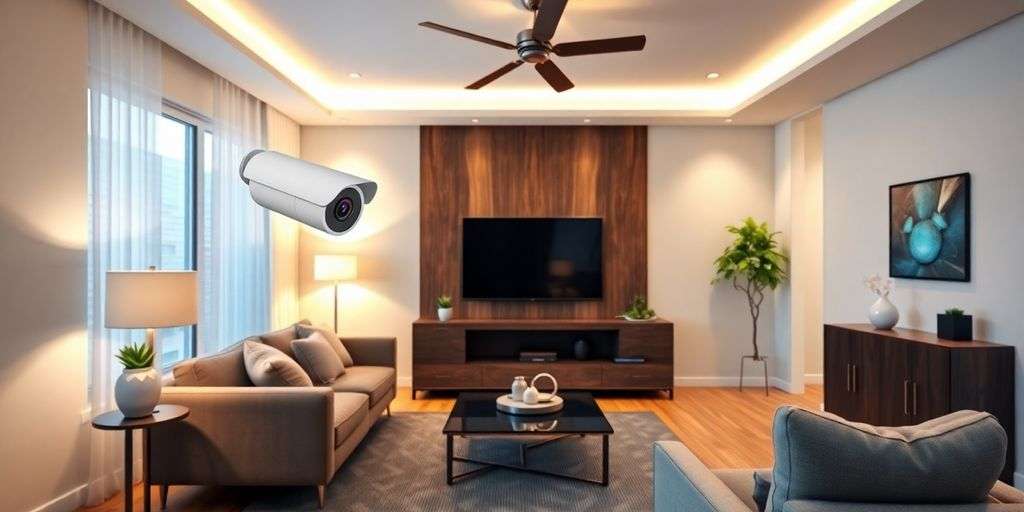Understanding CCTV Installation Options
When considering CCTV installation, it is essential to understand the various options available. Choosing the right system can significantly enhance your security.
Wired vs Wireless Systems
- Wired Systems: These provide a stable connection and are less prone to interference. They are ideal for permanent installations.
- Wireless Systems: These offer flexibility and easier installation, making them suitable for temporary setups or areas where cabling is difficult.
Key Placement Areas
To maximise security, focus on these critical areas:
- Entry Points: Front and back doors, as well as ground-floor windows.
- Parking Areas: Ensure coverage of driveways and garages.
- Perimeter: Monitor the entire boundary of your property.
Privacy Considerations
It is crucial to respect privacy while installing CCTV. Avoid placing cameras in sensitive areas such as:
- Bathrooms
- Bedrooms
- Neighbouring properties
Lighting & Field of View
Proper lighting is vital for effective surveillance. Consider the following:
- Install cameras in well-lit areas to capture clear footage.
- Use infrared cameras for night-time monitoring.
- Ensure the field of view covers all necessary angles without blind spots.
Understanding these options will help you make an informed decision about your CCTV installation, ensuring that your security needs are met effectively.
DIY CCTV Installation: What You Need to Know
Essential Tools and Equipment
To successfully install a CCTV system, you will need a few essential tools and equipment. Here’s a list to get you started:
- CCTV cameras (wired or wireless)
- A Digital Video Recorder (DVR) or Network Video Recorder (NVR)
- Cables (if using wired cameras)
- Power supply units
- Mounting brackets and screws
- A drill and screwdriver
- A laptop or monitor for setup
Step-by-Step Installation Guide
Installing your CCTV system can be straightforward if you follow these steps:
- Plan your camera locations based on the areas you want to monitor.
- Install the cameras at the chosen locations, ensuring they are securely mounted.
- Connect the cameras to the DVR/NVR using the appropriate cables.
- Power on the system and configure the settings via the monitor.
- Test each camera to ensure they are capturing the desired footage.
Common Challenges and Solutions
While installing a CCTV system yourself can be rewarding, you may encounter some challenges:
- Poor image quality: Ensure cameras are not facing bright lights or windows.
- Wiring issues: Use the correct type of cables and check for any damage.
- Connectivity problems: For wireless systems, ensure a strong Wi-Fi signal.
Maintenance Tips
To keep your CCTV system functioning well, consider these maintenance tips:
- Regularly check camera angles and adjust as necessary.
- Clean the camera lenses to avoid dirt and dust affecting image quality.
- Update the software of your DVR/NVR to ensure optimal performance.
Maintaining your CCTV system is crucial for ensuring it continues to provide reliable security. Regular checks can prevent minor issues from becoming major problems.
Professional CCTV Installation: Is It Worth It?
Benefits of Hiring a Professional
Hiring a professional for CCTV installation can provide numerous advantages:
- Expertise: Professionals have the knowledge to ensure that cameras are placed correctly for optimal coverage.
- Time-Saving: They can complete the installation more quickly than a DIY approach.
- Safety: Professionals are trained to handle equipment safely, reducing the risk of accidents.
Cost Comparison: DIY vs Professional
When considering costs, it’s essential to weigh the long-term benefits against initial expenses. Here’s a simple comparison:
| Aspect | DIY Installation | Professional Installation |
|---|---|---|
| Initial Cost | Lower | Higher |
| Time Required | Longer | Shorter |
| Risk of Errors | Higher | Lower |
| Long-term Reliability | Variable | High |
Choosing the Right Installer
Selecting the right professional installer is crucial. Consider the following:
- Experience: Look for installers with a proven track record.
- Reviews: Check customer feedback to gauge satisfaction.
- Services Offered: Ensure they provide post-installation support.
Ensuring Optimal Performance
To maintain the effectiveness of your CCTV system, consider these tips:
- Schedule regular maintenance checks.
- Update software and firmware as needed.
- Ensure cameras are clean and unobstructed.
In summary, while DIY installation may seem appealing due to lower costs, hiring a professional can ensure that your CCTV system is set up correctly and functions effectively, providing peace of mind and robust security against potential threats.
Making the Right Choice for Your Security Needs

When it comes to securing your home, making the right choice is crucial. Here are some key factors to consider:
Assessing Your Security Requirements
- Identify vulnerable areas: Look for spots that are easy targets for intruders.
- Consider your lifestyle: Think about how often you are home and your daily routines.
- Evaluate the level of security you need based on your neighbourhood and personal circumstances.
Budget Considerations
- Initial costs: Determine how much you can spend on equipment and installation.
- Ongoing expenses: Factor in monitoring fees and maintenance costs.
- Look for options that provide good value without compromising on quality.
Long-Term Reliability
- Durability of equipment: Choose systems that are built to last and can withstand various weather conditions.
- Support and warranty: Ensure that the manufacturer offers reliable customer support and a solid warranty.
- Research user reviews to gauge the performance of different systems over time.
Future-Proofing Your System
- Scalability: Opt for systems that can be easily expanded as your needs change.
- Compatibility with new technology: Ensure your system can integrate with future smart home devices.
- Regular updates: Look for systems that receive software updates to enhance security features.
Choosing the right CCTV system is not just about immediate needs; it’s about ensuring your home remains secure for years to come.
Final Thoughts on CCTV Installation
In conclusion, deciding between DIY and professional CCTV installation comes down to your comfort level and the specific needs of your property. While installing cameras yourself can save money, it often requires careful planning and a bit of technical know-how. On the other hand, hiring a professional can ensure that your system is set up correctly and efficiently, providing peace of mind. Ultimately, whether you choose to go the DIY route or enlist the help of experts, the key is to ensure that your security measures are effective and tailored to your unique situation. Remember, the goal is to keep your home or business safe, so choose the option that best meets your needs.
Frequently Asked Questions
What are the main differences between wired and wireless CCTV systems?
Wired CCTV systems provide consistent security all the time, while wireless ones are easier to set up and more flexible.
Why is it important to hire a professional for CCTV installation?
Professionals know how to place cameras correctly for the best coverage and can avoid mistakes that might happen during a DIY installation.
What should I consider when deciding on CCTV camera placement?
You should focus on key entry points like doors and windows, ensure good lighting, and think about privacy to avoid filming sensitive areas.




